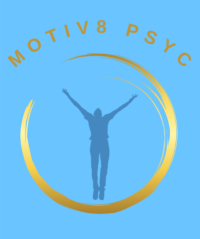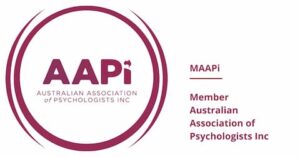Attention Deficit Hyperactivity Disorder (ADHD) is a neurodevelopmental disorder that affects both children and adults. Some of the behaviours that are observed when someone has ADHD can be inattention, hyperactivity, or impulsivity, which can impact daily functioning and quality of life. Looking more closely at these signs and symptoms of is crucial for early identification and intervention of ADHD. In this post, we’ll delve into the common signs and symptoms of ADHD and explore how they manifest differently in children and adults.
Signs and Symptoms of ADHD
ADHD symptoms are typically categorised into two main types: inattention and hyperactivity-impulsivity. While some individuals may exhibit symptoms predominantly from one category, others may display a combination of both.
Inattention
The type of ADHD symptoms of inattention may include:
- Struggles to Pay Attention: Difficulty sustaining attention during some activities, certain tasks or during play activities, making careless mistakes in schoolwork, work, or other activities.
- Lack of Focus: This can be displayed as seeming not to listen when spoken to directly.
- Avoid Tasks that Require Sustained Mental Effort: Reluctance or aversion to engage in tasks that require prolonged mental effort, such as schoolwork or homework.
- Easily Distracted: Prone to distractions from external stimuli.
- Forgetfulness: Forgetful in daily activities, such as tasks at home, attending to tasks, or appointments.
- Disorganisation: Difficulty organising tasks and activities, leading to problems with managing time and meeting deadlines
Hyperactivity-Impulsivity
Those with hyperactivity-impulsivity symptoms may:
- Fidget and Squirm: People with ADHD Find it challenging to stay seated in situations where it is expected, such as in the classroom or office.
- Inability to Stay Still: This can look like running or climbing in inappropriate situations or a feeling of restlessness.
- Excessive Talking: Talking excessively or often interrupting others without realising it.
- Difficulty Waiting: Struggling to wait for their turn in conversations or other activities.
- Interrupting: Frequently interrupting or intruding on others’ activities such as at work or during games.
ADHD in Children
In children, ADHD symptoms often become apparent in early school years when academic and social demands increase. Common indicators in children include:
- Academic Struggles: Poor academic performance despite having the intellectual capability to do the school work.
- Behavioral Issues: Frequent disciplinary issues at school due to challenges associated with being able to follow rules or instructions.
- Social Challenges: ADHD can impact someone’s ability to make and keep friends in a number of different ways, due to challenges with social interactions with others.
ADHD in Adults
While ADHD is often associated with children, it persists into adulthood. Symptoms in adults can manifest differently and impact various aspects of life, including:
- Work Performance: Difficulty meeting deadlines, following through on tasks, and maintaining consistent performance.
- Relationships: Struggles with maintaining relationships due to impulsivity and inattentiveness.
- Daily Responsibilities: Challenges in managing household responsibilities, finances, and daily routines.
Seeking Help
If you or someone you know is exhibiting signs of ADHD, it’s essential to seek a professional evaluation. ADHD can be diagnosed through a comprehensive assessment by a healthcare provider, typically a psychologist, psychiatrist, or paediatrician. Early diagnosis and intervention can greatly improve the quality of life for those with ADHD by providing strategies to manage symptoms effectively.
Treatment and Management
ADHD is typically managed through a combination of psychological therapy, medication, and lifestyle adjustments. Treatment plans are personalised based on individual needs and may include:
- Behavioral therapy helps develop coping strategies and skills to manage symptoms.
- Medication: Medications can help regulate ADHD brain biochemistry.
- Support Systems: Educational support, coaching, family and ADHD support groups can provide additional assistance.
Understanding and recognising the signs and symptoms of ADHD is the first step towards getting a correct diagnosis and being able to manage ADHD effectively. With the right support and interventions, individuals with ADHD can develop the skills and knowledge that can open up a new view of life and its possibilities. If you suspect ADHD in yourself or a loved one, contact a Motiv8 Psyc psychologist.


